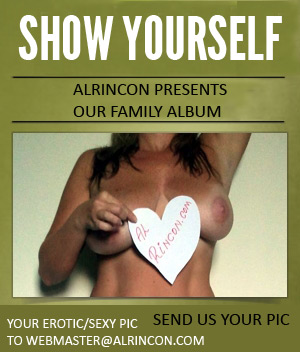Porn Discounts Sex Games Porn Games Juegos XXX Hentai Games PornStar Games 3D Porn Tantaly Sex Doll Cupsland Sextoy Live Cams
Live Sex Free Live Sex Free Sex Games Páginas Porno Rose Toy Free OnlyFans Celebrity Fappening Celebrity Sex Videos TikTok Porn Best OnlyFans
Live Sex Free Live Sex Free Sex Games Páginas Porno Rose Toy Free OnlyFans Celebrity Fappening Celebrity Sex Videos TikTok Porn Best OnlyFans
Published on 2024/10/30
ALRNCN-STYLE FAST FOOD
davidFast food restaurants have roots in the early quick-service establishments that emerged in the United States at the beginning of the 20th century. White Castle, founded in 1921 in Kansas, is generally considered the first fast-food chain to offer hamburgers at affordable prices. It was also a pioneer of the franchise model. By focusing on speed, convenience, and low prices, White Castle quickly attracted the working class and established a business model that chains like McDonald's would replicate. In the 1950s, McDonald's revolutionized the sector with innovations in operational efficiency.
The term "junk food" became popular in the 1970s to describe foods that are highly processed, high in fats, sugars, and calories, but low in nutrients. Although the term "junk food" originated in the United States, it’s widely used in other countries to discuss the health risks associated with these types of foods when consumed in excess. In the United States, the debate about fast food and its public health implications continues, especially regarding obesity and diet-related diseases.







|
➡️ Let's do real, be real with Tantaly, the sex doll torso leader |


ExtraBall
Nice melons.
ExtraBall2
(Clicking on these links daily you support ALRNCN's work. They're collaborators or sponsors and, by visiting their sites, they like us colemann more)










MARC LAGRANGE 2K25
Marc Lagrange, a photographer born in Kinshasa, Congo, is renowned for his sensual, erotic portraits and nudes. His work celebrates beauty and pleasure, crafting luxurious scenes far removed from everyday life, where intimacy and desire take center stage. His images are genuine hedonistic fantasies, meticulously detailed and characterized by impeccable technical mastery, turning each photograph into a unique work of art.

# View Photos
ExtraBall
Brightening up the train driver's day.
ExtraBall2
(Clicking on these links daily you support ALRNCN's work. They're collaborators or sponsors and, by visiting their sites, they like us even more)











AMATEUR FLESH: DUCKIE
Duckie is a true lingerie lover. Women who appreciate lingerie have a distinct style—sophisticated, detail-oriented, and with a refined taste. It’s not just about wearing something pretty; it’s about the feeling, the attitude, the pleasure of choosing well. They care about quality, the small details, and how each piece makes them feel. They’re not dressing to impress anyone—they do it for themselves. For them, lingerie is more than just underwear; it’s a way to express who they are, with elegance, confidence, and that natural touch of sensuality.

# See photos
ExtraBall
For once, the surprise isn’t inside the box.
She is actress Georgie Lyall, and in this link, you can check out many of her scenes.
ExtraBall2
(Clicking on these links daily you support ALRNCN's work. They're collaborators or sponsors and, by visiting their sites, they like us even more)



















RECOMMENDED SITES
 Add your site
Add your site
- Entensity
- Motherless
- BoobieBlog
- Babes & Bitches
- Erotic Beauties
- celeb-stalker.com
- drunkenstepfather
- Candid Teens
- sweetlicious
 Add your site
Add your sitePorn Discount
💩 CrazyShit
🤪 eFukt
NudeChatGirls
👉🍑 Top XXX Pictures
Bingo Porno
Best Porn Blog Sites
Sex Games
Real Amateur Porn
MrPornGeek
CamBB.xxx
ChatSex.xxx
Comepollas
PornScn Free Porno
AI Girlfriend App

















ANASTASIA MITINA FOR ANA DIAS
The brilliant photographer Ana Dias delivers pure visual magic once again, this time starring the stunning Anastasia Mitina in a shoot for Playboy Netherlands.

# View photos
ExtraBall
If I’d known, I wouldn’t have come upstairs.
ExtraBall2
(Clicking on these links daily you support ALRNCN's work. They're collaborators or sponsors and, by visiting their sites, they like us even more)











MULTIVERSES AND THE SPIDER-WOMEN
In the world of comics (and now in movies and shows too), multiverses are basically alternate versions of reality. Different worlds where things play out in completely different ways. And Spider-Man is one of the characters who’s traveled through the most of them—or has the most versions of himself out there.

# Watch videos
ExtraBall
Getting familiar with the gym, one step at a time.
ExtraBall2
(Clicking on these links daily you support ALRNCN's work. They're collaborators or sponsors and, by visiting their sites, they like us even more)











Contact
You can tell us whatever you want via email: [email protected]
If you prefer, you can use this contact form:
If you prefer, you can use this contact form:






THE WASHING MACHINE: THE SILENT REVOLUTION THAT CHANGED THE WORLD
The washing machine isn’t just one of the most useful home appliances—it played a massive role in something much bigger: freeing up women’s time. Before it came along, doing the laundry was an hours-long (or even days-long) job, done by hand, in cold water, with a ton of physical effort. It was such a grind that entire days were set aside just for washing clothes.
The first electric washing machine was invented in the early 20th century, but it didn’t become common until after World War II. As it made its way into households, it freed up countless hours each week and helped open the door for women to join the workforce. It’s no exaggeration to say that the washing machine gave a massive boost to feminism—quietly but powerfully.
🌀 Fun fact: In 2009, The Economist published a list of the most important inventions of the modern era… and the washing machine ranked higher than the internet and mobile phones. They literally said it “did more for women’s liberation than the right to vote.”

# Watch videos
For Apple users
You might have noticed that when attempting to join our Telegram Channel you get a message that flags our content as sensitive content, which ends up not letting you see anything; this means you have the parental control activated.
This means you have to go to the web version of Telegram https://web.telegram.org and log in, if you are not already. In the settings, in the "Privacy" section, find the option "Sensitive content" and activate "Disable filtiaguapas0204ng". As soon as you do, the Settings will automatically sync with the rest of your devices, including the iOS and macOS versions of the App Store.
From there you will be able to enter all the Adult Channels.
ExtraBall
Workout for the week: Done ✅

ExtraBall2
(Clicking on these links daily you support ALRNCN's work. They're collaborators or sponsors and, by visiting their sites, they like us even more)









FROM FREE HUGS TO FREE SEX
Remember the "Free Hugs" viral thing? That handwritten sign on a piece of cardboard, held by someone standing in the middle of the street, hoping some brave soul would go in for a little spontaneous affection. It became a full-blown phenomenon a couple of decades ago—a simple, feel-good gesture that, at the time, actually felt kind of revolutionary.
It all started with the “Free Hugs” movement back in 2004 in Australia, when a guy named Juan Mann hit the streets with his sign, just looking for a bit of human connection. It didn’t take long for the video to blow up on YouTube and turn into a symbol of hope, empathy, and human closeness—at a time when the world was already getting lost in screens and fast-paced routines.
A lot has changed since then. And while the cardboard + message + spontaneity combo is still around, let’s just say it’s taken a few… interesting turns.

# View Images
ExtraBall by david
Choose your player.
ExtraBall2
(Clicking on these links daily you support ALRNCN's work. They're collaborators or sponsors and, by visiting their sites, they like us even more)



























